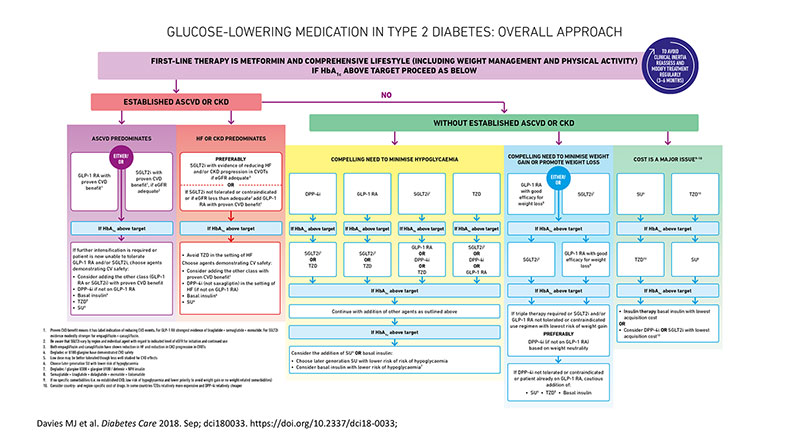A screening test with an A or B rating from the US Preventive Services Task Force should have no patient due amount. Colonoscopy usually requires a sedative or anesthesia.
 Rise In Chronic Conditions Is Putting More Americans At Risk For Colorectal Cancer Blue Cross Blue Shield
Rise In Chronic Conditions Is Putting More Americans At Risk For Colorectal Cancer Blue Cross Blue Shield
American Cancer Society guidelines on screening and surveillance for the early detection of colorectal adenomas and.

Bcbs screening colonoscopy guidelines. An Overview of Colonoscopy Coding Guidelines Screening colonoscopy is a service with first dollar coverage. The United States Preventive Services Task Force USPSTF guidelines on screening for colorectal cancer are unique in that they provide age-based guidance on when routine colonoscopy screening should be initiated and terminated. Sigmoidoscopy every 5 years with high-sensitivity fecal occult blood testing every 3 years Screening colonoscopy every 10 years Note.
BCBSOK will not enforce age restrictions on the coverage of colonoscopy to screen for colorectal cancer without patient cost sharing. Fecal occult blood test or FIT every year FIT-DNA every one to three years Flexible sigmoidoscopy every five years Flexible sigmoidoscopy every 10 years plus FIT every year CT colonography every five years Colonoscopy every 10 years. Clean the lining of your colon with a water jet irrigate Remove any liquid stool with a suction device.
Colorectal cancer Health professionals facts on screening Screening Test FOBT Fecal Occult Blood Test Flex Sig Flexible Sigmoidoscopy Combination- Flex Sig FOBT Colonoscopy DCBE Double Contrast Barium Enema Frequency Age 50-75 once a year. ColonosCopy sCreening getting the Best Benefit The American Cancer Society recommends that men and women should begin regular screening and testing for colorectal cancer beginning at the age of 50. Requires colon prep of 1 -2 days including liquid diet and colon cleansing.
Colonoscopy every 10 years or flexible sigmoidoscopy every 5 years or fecal occult blood test annually Hearing Screening Beginning at age 65 Immunization. Work inside your bowel with surgical tools. 28 The recommendations are.
To report screening on a Medicare beneficiary at high risk for colorectal cancer use HCPCS G0105 and the appropriate diagnosis code that necessitates the more frequent. Screening often begins 5 years after the radiation was given or at age 30 whichever comes last. If a problem is found during the screening and a procedure is performed to address the problem such as polyp removal the claim will still be paid as preventive with no cost sharing if it has been billed with modifier 33.
Adult Recommendations Screenings Weight Every 13 years Body Mass Index BMI Every 13 years Blood Pressure BP At least every 2 years Colon Cancer Screening Beginning at age 50. Whether its immunizations or colonoscopy ask them in a caring way why theyre reluctant. We need to be respectful of their choices.
Colorectal Cancer Screening and Counseling Age 50-75. To report screening colonoscopy on a patient not considered high risk for colorectal cancer use HCPCS code G0121 and diagnosis code V7651 Special screening for malignant neoplasm of the colon. When transportation is a challenge our care managers have driven patients to their colonoscopy procedures.
The Colorado Clinical Guidelines Collaborative. Fecal Occult Blood Testing FOBT Flexible Sigmoidoscopy Colonoscopy Double-Contrast Barium Enema DCBE References 1. The earlier signs of colon cancer are detected the easier it is to prevent or treat the disease.
Blood pressure measurement in infants and children with specific risk conditions should be performed at visits before age 3. Most of these people will need to start having colorectal screening colonoscopy or stool based testing at an earlier age depending on how old they were when they got the radiation. Pap TestPelvic Exam Women age 21-29 should have a Pap Test every 3 years.
Driving restrictions for 24 hours after testing. Two of the options for colorectal cancer screening are easy to do. Less than 50 years of age and at increased or high risk for colorectal cancer according to the most recently published colorectal cancer screening guidelines of the Ameri can Cancer Society or guidelines.
Evidence Based Guideline for Colon Cancer Screening Colonoscopy may be appropriate for any nonsymptomatic individual who is. The USPSTF recommends that screening colonoscopy begin at age 50 years and continue to age 75 years. A colonoscopy is an important preventive care screening test that helps detect pre-cancer or colon cancer.
Women age 30-65 should have a Pap Test alone every 3 years or combined with HPV testing every 5 years. Those who have a family history or other risk factors for colorectal polyps or cancer should talk with their. Colorectal cancer screening Choose one of the following screening schedules for adults 50 to 75 years old.
Adults 50 to 75 years old. The decision to screen for colorectal cancer in adults aged 76 to 85 years should be an individual one. Age 50-75 FOBT annually and Flex Sig once every 5 years.
Fear is a huge driver. Inject air in your bowel to make it easier to see inside. Colonoscopy or fecal occult blood test or sigmoidoscopy Mammogram Annually at age 40.
At least 50 years of age or 2. If a screening colonoscopy is performed with no findingsSubmit the claim with CPT code 45378 or HCPCS code G0105G0121 diagnosis code Z1211 and modifier33 or PT. The USPSTF recommends screening for colorectal cancer starting at age 50 years and continuing until age 75 years Grade A Adults 76 to 85 years old.
Samples can be collected at the time of the procedure and sent for testing to detect cancer or precancerous growths. Age 50-75 once every 5 years. During a colonoscopy your provider may remove tissue or abnormal growths polyps for further exam.
Blue Cross addresses common questions about colonoscopies. If a procedure is billed as a screening colonoscopy benefits will be applied as preventive based on the intent of the test and not on the findings.





